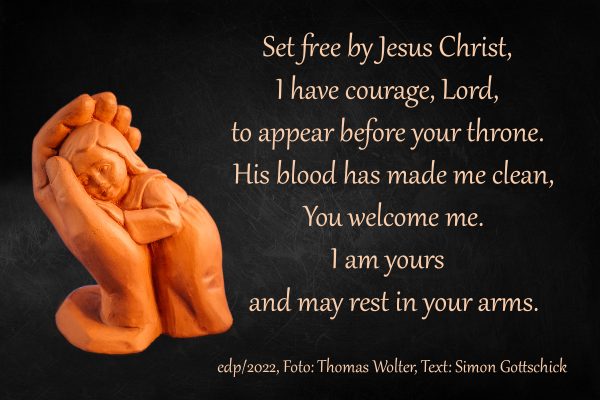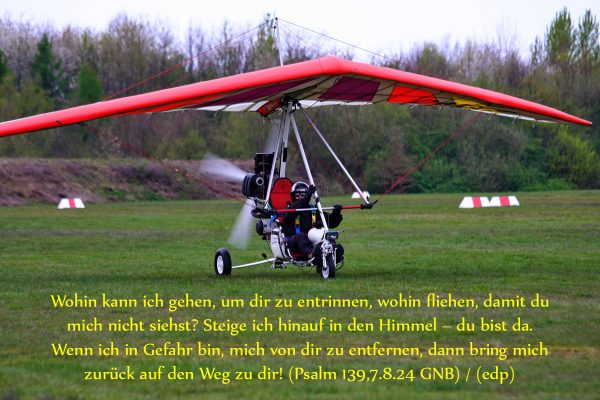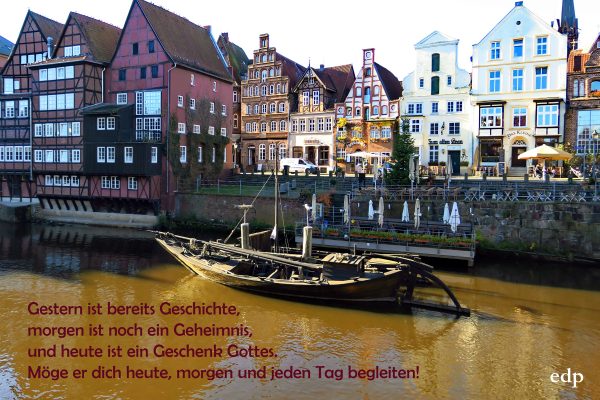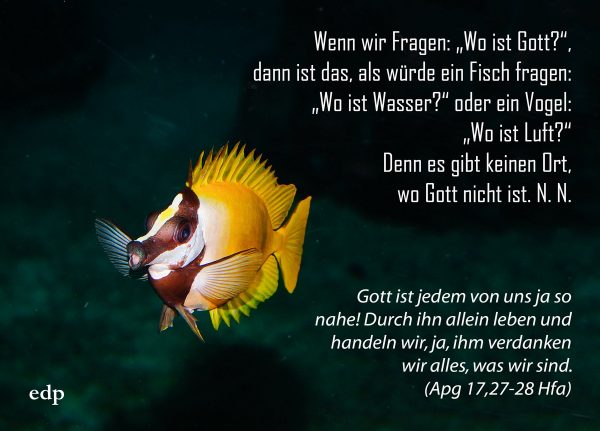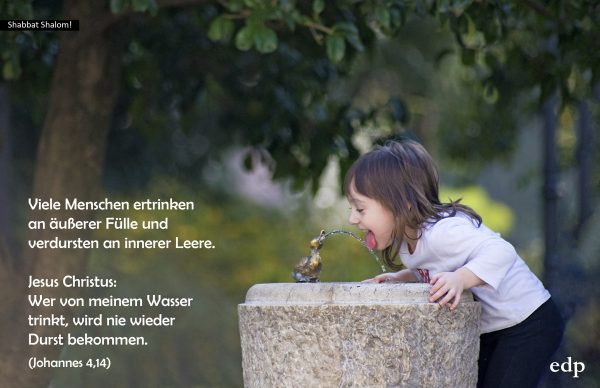[nx_spacer]
Die Tür ist offen. Dauerhaft!
Adventisten studieren zurzeit weltweit den Hebräerbrief aus dem Neuen Testament und unterhalten sich darüber im Bibelgespräch (gewöhnlich vor der Predigt; während der Corona-Pandemie gibt es Ausnahmen). Im Studienheft wurde dieser Woche das schöne Lied „Mutig komm ich vor den Thron“ [Gottes] zitiert.
Ist das nicht selbstverständlich, dass wir zu jeder Zeit durch das Gebet die Nähe Gottes aufsuchen dürfen? Nein, ist es nicht, denn als Sünder würden wir die Gegenwart des heiligen Gottes nicht eine Sekunde ertragen. So durfte im Volk Israel niemand den heiligsten Raum der Kultstätte betreten, ausgenommen der Hohepriester, und das einmal im Jahr (am sogenannten Yom Kippur).
Eine der vielen guten Nachrichten des Hebräerbriefes lautet: Jesus Christus hat uns durch seinen Tod die „Brücke“ zurück zum Vater gebaut. Weil er unsere Sünden auf sich genommen hat, dürfen wir die Nähe Gottes aufsuchen – so häufig und so lange wir wollen. Ohne irgend einen Mittler (außer Jesus Christus selbst).
Dieser freie Zugang, diese „Öffnung“ würde zu alttestamentlichen Zeiten die Gläubigen jubeln lassen. Wie aber empfinden wir? Haben wir uns vielleicht daran gewöhnt, sodass dieser direkte Zugang zu Gott zur Selbstverständlichkeit geworden ist?
![]()
The door is open. Permanently!
Adventists around the world are currently studying the Epistle to the Hebrews from the New Testament and talking about it in the Bible discussion groups (usually before the sermon; there are exceptions during the Corona pandemic). In this week’s study booklet, a beautiful song was quoted. (Free translation of a part of the song see the photo.)
Is this not obvious, that we may seek out the nearness of God at any time through prayer? No, it is not, for as sinners we would not bear the presence of the holy God for a second. Thus, among the people of Israel, no one was allowed to enter the holiest room of the place of worship, except the high priest, and that once a year (on what is called Yom Kippur).
One of the many good messages of the Letter to the Hebrews is: Jesus Christ has built the “bridge” back to the Father for us through his death. Because he took our sins upon himself, we are allowed to seek God’s nearness – as often and as long as we want. Without any mediator (except Jesus Christ himself).
This free access, this “opening” would have made believers rejoice in Old Testament times. And yet, how do we feel? Have we perhaps become accustomed to it, so that we take for granted this direct access to God?
![]()
La puerta está abierta. Permanentemente.
Los adventistas de todo el mundo están estudiando actualmente la Epístola a los Hebreos del Nuevo Testamento y conversando sobre ella en sus cultos. En el folleto de estudio de esta semana, se citó una hermosa canción, de la que una parte cito en esta foto.
¿No es evidente que podemos acudir a la presencia de Dios en cualquier momento a través de la oración? No, no lo es, porque como pecadores no soportaríamos la presencia del Dios santo ni un segundo. Así, en el pueblo de Israel, nadie podía entrar en el lugar santísimo, excepto el sumo sacerdote, y eso sólo una vez al año (en el llamado Yom Kippur).
Uno de los muchos y buenos mensajes de la Carta a los Hebreos es: Jesucristo ha construido el “puente” de regreso al Padre a través de su muerte en la cruz. Porque él tomó nuestros pecados sobre sí mismo, podemos acudir a la presencia de Dios – tan a menudo y tanto tiempo como queramos. Sin ningún mediador (excepto el propio Jesucristo mismo).
Este libre acceso, esta “apertura” habría hecho regocijarse a los creyentes en los tiempos del Antiguo Testamento. Y nosotros, ¿cómo nos sentimos? ¿Acaso nos hemos acostumbrado a ello, de modo que este acceso directo a Dios se ha convertido en algo obvio?


